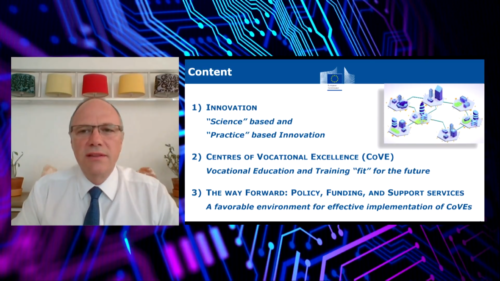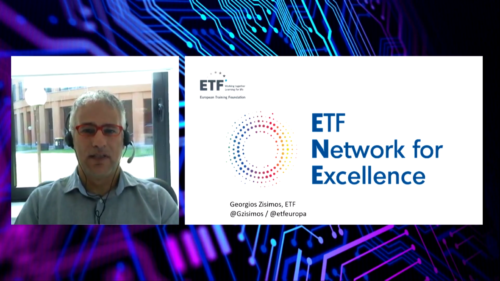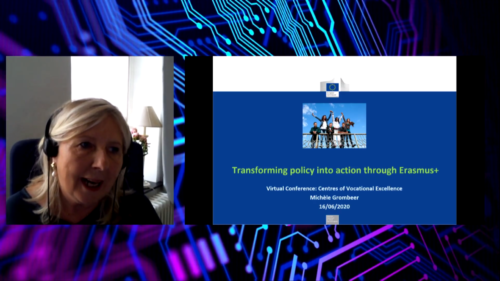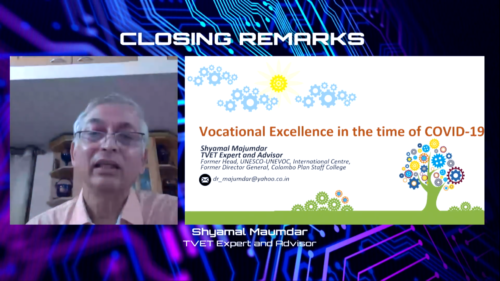Basque VET Applied Research Centre hosted Online Conference on CoVEs
17/06/2020
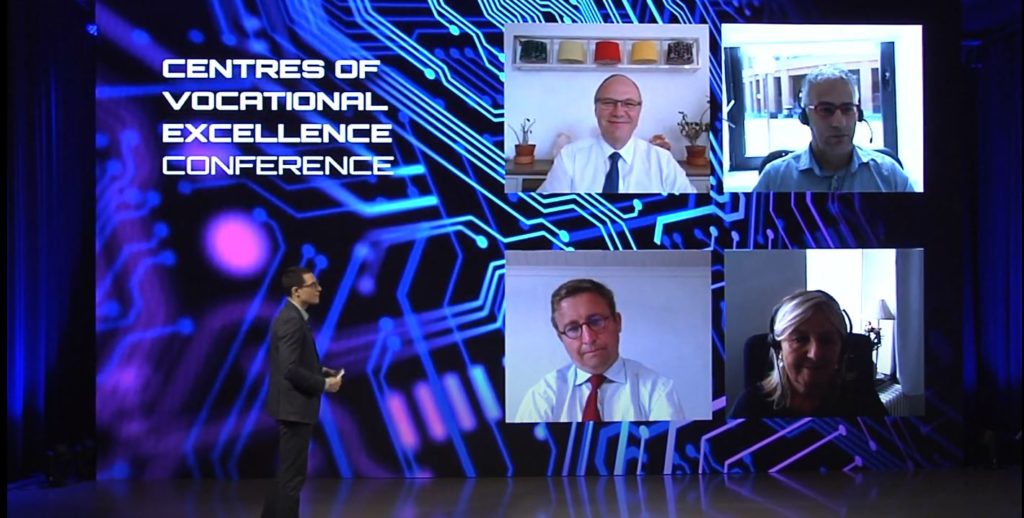
TKNIKA, the Basque VET (Vocational Education & Training) Applied Research Centre hosted on 16 June 2020 an online conference on Centres of Vocational Excellence (CoVEs) gathering more than 1,700 participants from all over the world. The event counted on the participation of speakers from EU institutions and the five pilot initiatives of VET excellence platforms selected for funding in 2019 were showcased, including EXAM 4.0.
The day began with the introductory words of Mr. Jorge Arévalo, Basque Vice-Minister of VET, who reminded of the importance of rowing together in the uncertain and challenging circumstances of the COVID-19 pandemic. He pointed out that the 4th Industrial Revolution is still going on, even at a larger speed than before, and the future needs to be human centred to face such challenges. In this context, the Basque smart VET centres focus on intelligence, sustainability, and complexity, working in collaboration networks in order to provide high-performance training, strategic innovation and applied intelligence.
His speech was followed by the presentation of Mr. João Santos, Senior Expert at European Commission’s (EC) DG EMPL, who further explained the concept of Centres of Vocational Excellence, which are supported by the Commission through policy, funding, and support services. Modernising VET and keeping it tightly connected to local realities is a key objective that can only be accomplished by having all actors involved, including authorities and policymakers, education and innovation centres, and the private sector.
This call for cooperation was shared by Mr. George Zisimos, Senior Officer at the European Training Foundation (ETF), who foresees systems of VET excellence as a next step for the CoVEs initiative, and Mr. John Edwards, Project Leader at EC’s Joint Research Centre (JRC), who also reminded of the importance of linking smart specialisation strategies to human-centred policies and sustainable development goals (SDGs). The last speech on the institutional side was made by Ms. Michele Grombeer, Head of Sector at EC’s Education, Audio-visual and Culture Executive Agency (EACEA), who provided a practical approach to EU funds for VET excellence and the pilot calls launched in 2019 (Erasmus+ KA2 Sector Skills Alliances) and 2020 (Erasmus+ KA3).
- Mr. Jorge Arévalo
- Mr. João Santos
- Mr. George Zisimos
- Mr. John Edwards
- Ms. Michelle Grombeer
- Dr. Shyamal Majumdar
Pilot projects of VET excellence
The second part of the conference consisted of presentations from all five pilot projects to build up platforms of centres of vocational excellence, which were selected for funding in 2019 by the European Commission. Five partnerships involving education institutions, the industry and other relevant actors are currently working to drive excellence in different VET sectors.
- The EXAM 4.0 project (Excellence in Advanced Manufacturing), coordinated by TKNIKA and in which EARLALL is a partner, aims at driving innovation in the advanced manufacturing (AM) sector through two key actions: setting up the EXAM 4.0 hub, a European platform of excellent advanced manufacturing VET centres, and designing the EXAM 4.0 lab, a physical space where students can acquire relevant competences to work in 4.0 environments in the AM sector.
- The DIHUB project (Digital Innovation Hub for Cloud Based Services), coordinated by Helsinki Business College (HBC), will develop a Digital Innovation Hub that will consist of a cluster of 5 interconnected nodes, allowing collaboration among VET students, education providers, and businesses.
- The DEUS project (Open Design School), coordinated by Foundation Matera-Basilicata 2019, aims at co-creating a European-wide learning and training approach to design, critical thinking, and entrepreneurship, unlocking the potential of the cultural and creative sector.
- The PoVE Water (Platform of V
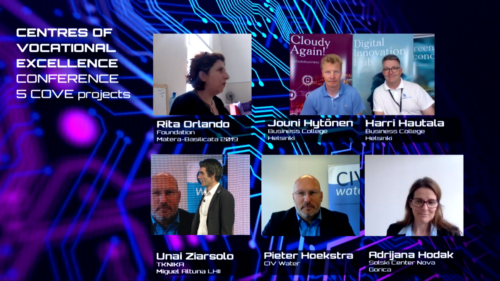 ocational Excellence), coordinated by CIV Water, is based on existing and emerging vocational competences and skills needs in the water sector to transform them through an excellence approach.
ocational Excellence), coordinated by CIV Water, is based on existing and emerging vocational competences and skills needs in the water sector to transform them through an excellence approach. - The TALENT JOURNEY project (Platform for CDS VET Excellence), coordinated by Šolski Centre Nova Gorica, focuses on the Internet of things (IoT) sector to narrow the skills gap in manufacturing.
The concluding remarks were made by Dr. Shyamal Majumdar, TVET Expert and Advisor, and former Head at UNESCO-UNEVOC. He explained how the COVID-19 outbreak has meant a three-fold crisis: health, learning and mindset. In this context, Technical Vocational Education and Training (TVET) must act as “a driver of social and applied innovation, a development vector for local and regional growth and as an initiator to create a culture of bottom-up innovation and excellence.”
Useful links
- Recorded conference (English audio)
- Recorded conference (Spanish audio)
- Platforms of Centres of Vocational Excellence, European Commission
- More information about the conference, TKNIKA
[ssba-buttons]



